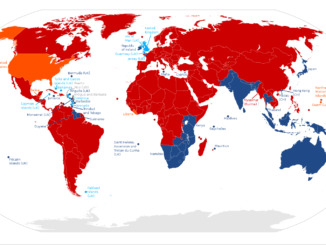
Darrin McMahon is an immensely skilled historian and writer. His book, “Happiness… a History” is captivating. Yet, it may have been a single chapter short of being a philosophical landmark. McMahon’s history of happiness reaches back as far as Socrates, takes us through the middle ages, the Enlightenment, and the Post-Enlightenment. He includes an impressive number of protagonists, including (but by no means limited to) Locke, Jefferson, Hume, Marx, Darwin, Nietzsche, and unfortunately, ends his history with Sigmund Freud. How much more replete and uplifting his book would have been if McMahon had elected to include the man who discovered the most happy and productive people in the world, Abraham Maslow.
Maslow did not contest Freudian psychology or the behaviorist ideas of Watson and Skinner. He rather viewed them as too limited to adequately explain human behavior. Maslow inspired what is called the Third Force in psychology, the science of self-actualizing. His ideas about self-fulfillment, creativity, and well-being still influence not only psychology, but also modern health care, education, managerial theory, organizational development, and even theology. Postmodernists tend to relegate Maslow to his psychology 101 pyramid of needs. But his greatest discovery was that of a new kind of persons, the Self-Actualizers, those fortunate few who inhabit the top one percent of humankind. Although there is no perfect, sustained, blissful happiness, Self-Actualizers come close with their remarkable lives of meaning and purpose.
Abraham Maslow was a lifelong atheist who began his career as a behaviorist and a Freudian psychologist. In time he began to doubt the comprehensiveness of the theories of Freud and Skinner. Those theories explained much about the large number of grievously defective, immature mortals who inflict turmoil upon themselves and others. But what about the rare, healthy, industrious specimens of humankind? Maslow wondered if we could learn more about how to become better, happier persons if we studied healthy human specimens. So he began his search for exceptional human beings. He found them. Not in great numbers, but enough to evidence higher ceilings for possible human development.
More important, Dr. Maslow formed a theory about how the self-actualizing person got that way. Two important ingredients are present. One is no surprise. All Self-Actualizers are devoted to a worthy cause or purpose that they believe to be more important than their own personal welfare. The second component is not anything like what you might imagine. What Maslow was to call his “greatest finding” was that every Self-Actualizer, without exception, was dedicated to wholeheartedly embracing the classic triad of metavalues: truth, beauty, and goodness. Near the end of his life he stated in a lecture:
“… what constituted the big difference for self-actualizing people was that their activity became a channel or medium for expressing the eternal, ultimate values-the true, the good, the beautiful, the just-in everyday life… This realization astounded me. I remember rereading Plato’s Republic, in which he stated that the ultimate good involves the contemplation of the ultimate values. What was so amazing was that I had found men and women in everyday life who were embracing, actually living, these ultimate values… They could be attorneys, educators, scientists, or grocery store owners, but in a real sense, they were sages and saints.”
Unfortunately, theintellectuals of Maslow’s day sniffed at such Pollyanna talk. Values such as truth, beauty and goodness have been brutally ridiculed by elite intellectuals and cynical philosophers since the 19th century. The secular humanist movement held, and still holds, the idea than a human being is simply a complex animal. This situation is not news to Professor McMahon. He wrote an insightful review to the elegant book: “The Nobility of Spirit… a Forgotten Ideal” by Bob Riemen. In it he quotes Riemen:
“There can be no civilization without the realization that human beings have a double nature. They have a physical, earthly existence but are distinguished from other animals by also having a spiritual being and by knowing the world of ideas.” McMahonadds his own comments:”It is the role of thinkers and writers, [Riemen] believes, to serve as guardians of our spiritual nature and as custodians of timeless values, cultivating ‘truth, goodness, and beauty’ as well as’freedom and justice, love and charity.’ Therein lies the essence of human dignity and human freedom – the source of the spirit’s nobility.”
Professor McMahon states thisenlightened humanist view with power and precision.
In my judgment, before we can understand happiness we must answer the most urgent question of our time. The issue that must be joined is this: What is a human being? And McMahon expressed the urgency of this issue in his review of “A Nobility of Spirit.” He wrote:
“Over time, various forms of relativism and nihilism took hold in elite circles, as Mr. Riemen shows, especially in the wake of Nietzsche’s savage attack on the West’s moral underpinnings. The would-be guardians of culture became its destroyers… It is a depressing story – from the intellectual justifications of fascism and communist totalitarianism to the perverted idea that the mass murder of 9/11 was a ‘courageous’ act of the ‘oppressed.'”
There are those who may find these words too harsh. Do the intellectual justifications of fascism and communist totalitarianism really have anything to do with whether we define a human being as simply a complicated animal or as a being endowed with a spiritual nature? I believe they are directly related. Psychiatrist Viktor Frankl survived Nazi death camps, and lived on to write about them. In the same manner as most materialistic humanists, the Nazis viewed human beings as complex animals, different only in degree, not different in kind. Frankl saw this conviction as the foundation for their macabre barbarism. He wrote in his book “The Doctor and the Soul”:
“If we present a man with a concept of man which is not true, we may well corrupt him. When we present man as an automaton of reflexes, as a mind-machine, as a bundle of instincts, as a pawn of drives and reactions, as a mere product of instinct, heredity, and environment, we feed the nihilism which modern man is, in any case, prone.
“I became acquainted with the last stage of that corruption in my second concentration camp, Auschwitz. The gas chambers of Auschwitz were the ultimate consequence of the theory than man is nothing but the product of heredity and environment-or, as the Nazis like to say, of ‘Blood and Soil.’ I am absolutely convinced that the gas chambers of Auschwitz, Treblinka, and Maidanek were ultimately prepared not in some Ministry or other in Berlin, but rather at the desks and in the lecture halls of nihilistic scientists and philosophers.”
Now, let us return to the discussion of “Happiness… a History.” Granting me that we should include Abraham Maslow and his theory of metavalues in a history of happiness, there remains one question. Why is happiness so elusive? Even allowing that Self -Actualizers are happier than most people, and even if they have more peak experiences, surely they do not live in a state of continual bliss. Why is the state of happiness so fragile and ephemeral?
Perhaps because life is motion. We were advised by Alfred Adler to “Trust only movement.” From the moment we left the comfort and pleasure of our mother’s womb, we have been harassed, challenged, and made uncomfortable. For those of us who believe in an afterlife, it could be reasonably postulated that the entire life experience is a sort of extended birth. Perhaps material life is a bridge to another dimension. True, our life journey is uncomfortable and challenging, with only fleeting moments of happiness. Perhaps we are prodded with annoyances to compel us to keep moving.
In my judgment there is a nobler strategy than to be pushed and nudged unwillingly toward our destinies. Better to yield to the allure of things true, beautiful and good, and to allow these metavalues to pull us along in the manner of Self-Actualizers. According to Abraham Maslow this would foster “A new image of man, a new image of society, a new image of nature, a new philosophy of science, a new economics, a new everything.”
For my part, I am happy that we are blessed with great minds such as McMahon, Maslow, Riemen, Frankl, and countless others.
Proudly WWW.PONIREVO.COM



